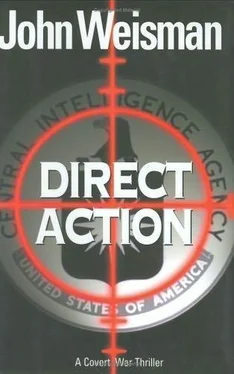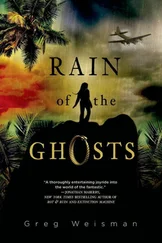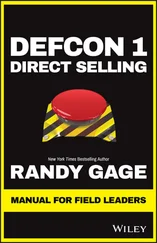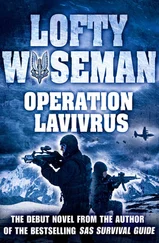These days, Shahram had a villa in Cap d’Antibes, and pieds-à-terres in London, Paris, and Tel Aviv. His business interests ranged from subcontracts for rebuilding Iraq’s postinvasion oil infrastructure to wireless telecommunications systems for the Democratic Republic of Congo. It was rumored he also took retainers from several intelligence agencies, something that didn’t surprise Tom Stafford.
After all, Shahristani was an outspoken opponent of Iran’s current hard-line regime. He maintained contacts inside Tehran’s power structure. And from the amount of inside information to which Shahram had access, he obviously still operated his own agent networks in a spectrum of political organizations and terrorist groups that ran the gamut from al-Qa’ida to the Mujahedin-e Khalq (also known as the MEK, or People’s Mujahedin of Iran), an Iraq-based group that carried out attacks against Tehran. He kept abreast of the political developments inside Lebanon’s Seppah-financed Hezbollah. He had sources inside Algeria’s murderous GIA ( Groupe Islamique Armé ) as well as Palestinian factions that ranged from Arafat’s Fatah itself to Hamas and Islamic Jihad.
Shahram first became a source of Tom’s in 1993. To be precise, on February 27, the day after terrorists had set off a twelve-hundred-pound bomb in the underground garage of the World Trade Center in New York City, killing six and injuring hundreds.
Initial reaction to the bombing was that it had been perpetrated by a domestic group because the modus operandi resembled the attack that had brought down the Murrah Federal Building in Oklahoma City. Nonetheless, Tom, who was working the CTC’s Arab branch desk in Paris, had been scrambled to see if any of his agents had information about the attack. He’d had a late-night coffee with one of his better developmentals, an Iranian émigré named Hosein al-Quraishi, who raised money and ran messages for the Mujahedin-e Khalq.
MEK was a mixed blessing. Originally, the group had supported the overthrow of the shah and the occupation of the American embassy in Tehran, so it had ended up on the United States official list of terrorist organizations. But these days it battled the regime in Tehran, received tacit if clandestine encouragement from the U.S., and was headquartered in the southern Iraqi city of Basra, where it received financial support from Iraqi dictator Saddam Hussein and other opponents of the hard-line mullahs.
Tom had queried al-Quraishi about Iranian involvement in the World Trade Center attack. The bomb, which had been placed in a rented van, had many of the earmarks of a Seppah operation. Hosein had shrugged Tom’s questions off, claiming he had no knowledge of such subjects. When Tom pressed hard, he’d finally said, “Perhaps I know someone who can tell you something helpful.”
Al-Quraishi made a phone call, and the next afternoon, in the long, narrow bar of the George V Hotel, he introduced Tom to Shahram. The three of them chatted for a quarter of an hour, and then Hosein excused himself, claiming a prior appointment.
Shahram remained, sipping orange juice and chain-smoking Dunhills as he and Tom played a chess game under the pretext of a perfunctory whom-do-you-know-and-how-do-you-know-them dialogue. After an hour and a half, the Iranian unbuttoned the jacket of his bespoke Givenchy suit, adjusted his narrow dark tie, and put both his hands on the table. “You have to understand my motive for seeing you.”
Tom looked at Shahristani.
“Your…organization has a sorry record,” Shahram said. “But that doesn’t matter. My motive has to do with Iran.”
“Iran?”
“If it weren’t for the madman Khomeini, Iran would be a prosperous Western country, edging toward its own form of democracy. Instead, it fosters hate and death under the guise of Shia Islam. The mullahs are devils, and despite your organization’s treatment of me, I will do what I have to do to bring them down.”
Tom started to say something, then realized that silence was his best ally right now. He watched as the Iranian scanned his face, his eyes probing. Finally, after what seemed to Tom to be an interminable period, Shahristani leaned across the table and stage-whispered, “Have the computer at your headquarters run the name Ramzi Ahmed Yousef, born in 1968 in Pakistan of a Palestinian mother. You will discover there will be records in the New York City for Yousef as having obtained a taxi driver’s license.”
Jerry von Brünwald, Tom’s station chief, had made a sour face when he’d mentioned Shahristani. “The man’s a fabricator,” von Brünwald said derisively. “A double-dealing, lying son of a bitch. Because of him, I was subpoenaed by a goddamn grand jury in 1987-the Iran-Contra flap. I don’t want to see anything with his name attached to it.”
Von Brünwald’s deputy, Sam Waterman, had been more open-minded. He approved Tom’s cable and backchanneled it to an old friend in the administrative division. Waterman’s contact passed the information up the chain of command. But Shahristani’s name was red-flagged. The Iranian had shown deception in a 1986 polygraph session during which he’d claimed to know the identities of the people who’d kidnapped the American hostages in Beirut. And so, the branch chief at Langley deep-sixed Waterman’s cable and its references to Ramzi Yousef.
Undeterred, Waterman himself washed Yousef’s name through the database and discovered the terrorist had, in fact, sought political asylum in the United States back in September of 1992. CIA records indicated Yousef had arrived in the company of a Palestinian who was on the Immigration and Naturalization Service’s terrorist watch list. The Palestinian was detained. Yousef, although he wasn’t carrying any documentation and was traveling on an expired Iraqi passport, was-absurdly, Waterman had said to Tom-granted asylum. And within weeks, Yousef had indeed applied for a New York City hack license.
Even though Shahristani’s information panned out, von Brünwald instructed Tom to give the man a wide berth. It was an order the younger man disobeyed. Indeed, so far as Tom Stafford was concerned, Shahram Shahristani’s information usually turned out to be on the money. He’d been right about Ramzi Yousef. He’d been right the following year, too, when in March he’d told Tom that the Seppah-e Pasdaran was planning a major attack on Israeli interests in South America. Shahram even told Tom the name of the Iranian who was running the operation: a high-level IRGC official named Feridoun Mehdi-Nezhad. The other major player was Talal Hamiyah, a Lebanese terrorist who’d been involved in the hijacking of TWA Flight 847 and the subsequent murder of U.S. Navy diver Robert Stethem.
Tom forwarded both names to Langley. He never received any response.
Then more than one hundred people were killed on July 18, 1994, when a car bomb exploded outside the Israeli-Argentine Mutual Association in Buenos Aires. Tom recabled Langley, reminding them about Shahristani’s heads-up. Once again, his message went unanswered.
To CIA, Shahram Shahristani was persona non grata. For Tom, however, the Iranian became a valued source. Sure, Shahristani had a grudge against Tehran-and sometimes his motives were transparent. Sure, he had a soft spot for Israel, but that was because he’d been trained by Mossad. Besides, Tom had learned how to factor Shahram’s prejudices and biases into what the Iranian said. And so far as he could determine, Shahristani had never lied to him.
Today, Tom was at Les Gourmets under protest. He’d seen Shahram less than two weeks ago. They’d spoken about the war in Iraq. Shahristani-as usual-had warned that Tehran was trying to influence Iraq’s Shia majority to mount an insurrection against the Americans. He claimed that Iran’s Islamic Revolutionary Guard Corps was responsible for the killing of a moderate Shia cleric the previous month. He maintained that the IRGC was not only subsidizing the anti-American newspaper published by a young radical Shia cleric named Moqtada al-Sadr, it was also slipping money to al-Sadr to finance the cleric’s militia, a collection of goons and thugs known as the Al Madhi Army. Tom had nodded politely. He’d heard that song from Shahristani before. Many times over.
Читать дальше












